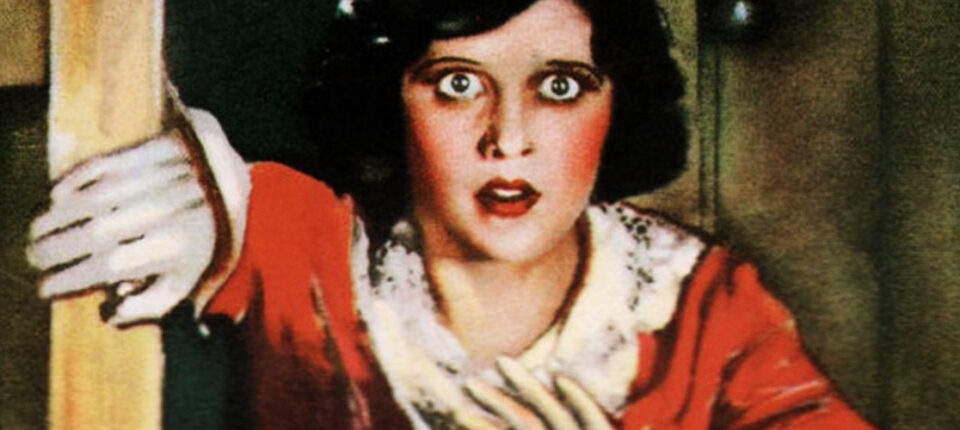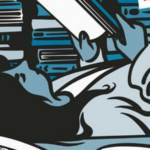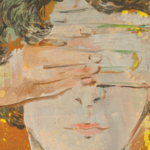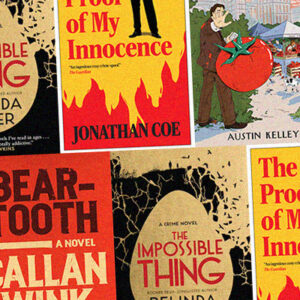Welcome to part two of our roundtable discussion featuring nominees for the Edgar Awards (as well as other special categories awarded during the same ceremony). 29 writers weighed in on the most pressing issues facing the genre today, and the place of crime writing in our current political landscape (perfectly timed for May Day!).
Check out part one of the discussion, published yesterday, for thoughts on craft, tropes, and favorite reads. And good luck to everyone at the ceremony tonight, as well as a big thank you to Mystery Writers of America for collaborating with us here at CrimeReads for the seventh year in a row.
__________________________________
What is the greatest issue facing the world of crime writing today? Can authors still earn a living plying their trade?
__________________________________
Bonnie Kistler (nominated for Best Paperback Original – Shell Games): Where is the next generation of crime fiction readers coming from? Our readers are typically mature––middle-aged and older. Young people don’t read our books in the same numbers. Instead, they’re overwhelmingly drawn to fantasy and romance. Will they naturally age into crime fiction or are they lost to us forever?
We see a lot of current crime fiction that tries to cater to younger readers by including the kinds of touchstones we imagine young people are drawn to: podcasters, internet influencers, reality TV shows. We’ve seen some series authors phase out an older white male protagonist in favor of a young female. Is any of this working? Are these the best ways to reach the hordes of fantasy readers?
Pat Gaudet (nominated for the Robert L. Fish Memorial Award – “The Legend of Penny and the Luck of the Draw Casino,” Ellery Queen Mystery Magazine, May-June 2024): Too much over-exposure to the subject by made-for-TV movies and true crime shows. While I enjoy some of those myself, once the audience is satiated by their content, the novel or short story plots hold less appeal. I suspect fewer authors are still earning a living plying their trade than there were ten years ago.
Joanna Schaffhausen (nominated for the Sue Grafton Memorial Award – All the Way Gone): I don’t think a majority of authors have ever been able to make a living plying their trade. They either had family money or a second job, and this is largely still true. The biggest problem writers have these days is that we outnumber the readers…by a lot. It is easier than ever to get your book out there, which is great, but it is harder than ever to find readers, which is the opposite of that.
Michelle Chouinard (nominated for the Mary Higgins Clark Award – The Serial Killer Guide to San Francisco): The greatest issue facing us today is the advent of AI. Not only are companies using our copyrighted works to generate new works without compensation, the technology is so new it brings up new challenges for writers and other artists daily. I believe it’s important and useful technology in so many ways, but we’re facing a huge challenge in figuring out how to responsibly deploy it. Especially since, as the question brings up, it’s extremely difficult for authors to earn a living without a secondary job; when AI violates our rights without compensation, that makes earning a living infinitely more difficult.
Kelley Armstrong (nominated for the Sue Grafton Memorial Award – Disturbing the Dead): One of the biggest issues crime writing faces is an aging readership and the challenge of bringing in new and younger readers, many of whom see mysteries and thrillers as something their parents read. The current interest in YA thrillers helps with that, as does crossover mystery, where younger readers may enter through a side door (such as mystery with fantasy elements) and branch out from there.
Frank Figliuzzi (nominated for Best Fact Crime – Long Haul: Hunting the Highway Serial Killers): There are a few challenges for today’s crime writing. First, publishers seem less willing to take a chance on a book that may present more risk than they wish to tolerate. Major publishers seem to be under financial strain, and this impacts everything from too few editors working on too many books simultaneously, risk tolerance for books that might involve unpleasant topics, and the lack of serious marketing and PR budgets. Specifically for crime writers, rapid advancements in crime fighting technologies, such as facial recognition, biometrics, facial recognition, etc, require an author to constantly remain current and do their homework before they write.
__________________________________
What is the role of genre fiction, when it comes to politics and social criticism? Is entertainment enough of a value on its own?
__________________________________
Nicolás Ferraro (Nominated for Best Novel – My Favorite Scar): I understand the crime novel as a “Trojan horse”. Because, on the one hand, the reader finds themselves immersed in a story, in an adventure; noir is one of the last refuges of epic fiction in our society. But on the other hand, while the reader is reading and being entertained, their guard is down, and behind the scenes, they are learning about various topics—such as migration, drug trafficking, and gender violence—that they would otherwise be more reluctant to read. Telling a father-daughter story, where the background is the problem of drug trafficking on the border, isn’t the same as forcing someone to read a theoretical essay on the same topic. The important thing, at the end of the day, is to tell a good, entertaining story in which the reader doesn’t feel like they’re being lectured.
Charlotte Vassell (nominated for Best Novel – The In-Crowd): Pleasure is important, it’s what we live for and I want to give readers a fun couple of hours, but humans are fundamentally political creatures. Everything we do is political. I think novels are an extremely important arena for the exploration of ideas. The absence of any notable politics in a book isn’t merely an absence, it’s an attempt to maintain the status quo, whatever that is at the time. Crime is and of itself an extremely political genre: murder is after all a violation of the social contract. The society where an atrocity takes place naturally then comes under criticism for allowing it to happen.
Jacqueline Winspear (nominated for the Sue Grafton Memorial Award – The Comfort of Ghosts): I think the notion of “genre fiction” is something of a moveable feast, especially given the emergence of “cross genre” and other blended literary forms. The role of fiction is to tell a good compelling story, though at the same time it might expose the reader to another perspective on a long-held notion, or simply immerse them in world outside their own until they turn the final page. There are so many reasons to pick up a book and to be held by the story, whether there is a political or social meaning between the covers or not—and that is down to the reader, their needs and their unique interpretation of the narrative. If one of my novels helps draw away the reader’s pain—even for a few moments—while sitting at the bedside of a very ill loved one, I’ll consider it a good day’s work.
Joanna Schaffhausen: Of course entertainment has value of its own. What is life, if not to be enjoyed? Genre fiction offers a certain predictability, as in mysteries, where a crime will be committed and the solution will be revealed to the reader. Most often, justice is restored. It’s like going to your favorite restaurant. If you’re hungry for pasta, you’re not walking into a sushi joint. Genre allows you to select the flavor of your story.
But it would be silly to think you can entirely separate fiction from politics. Politics is not just about whom we vote for; it’s about the ideals we expect these candidates to enact. If your story has no values, then it probably has no value either.
Alexis Stefanovich-Thomson (nominated for Best Paperback Original – The Road to Heaven): Genre fiction seems to me to be a bit of an arbitrary category created by booksellers, publishers and libraries. It seems that crime, transgression and even murder are at the very centre of the western tradition. Some of the very earliest narratives: the Genesis story of Cain and Abel, or Plato’s The Trial and Death of Socrates have the key elements of crime fiction right at their heart. And really, how can works with titles like Crime and Punishment or The Trial be considered anything but crime fiction. But they aren’t. It’s a bit like trying to differentiate between the classifications of fruits and vegetables: the main difference seems to be where the retailer displays them.
And so, my answer is that genre fiction—and most specifically crime fiction—has the same responsibility as all literature when it comes to politics and social criticism: to hold a mirror up so we can see our world anew. As Shelley said nearly two hundred years ago, “Poets are the unacknowledged legislators of the world.”
Henry Wise (nominated for Best First Novel – Holy City): Genre fiction—or fiction of any kind—should be deeper than a commentary on political or social trends. I believe an author should be able to see and render the human in even the most corrupt, ruthless, or despicable act and, conversely, see the shadows beneath anything that glows or glitters too hard and seems beyond reproach. Fiction has that ability to stare through the glare of the ephemeral and depict the ongoing stories. In this way, literature, fiction, genre fiction, and even poetry can be forces of stability in times of turmoil. They root us in the tragicomedy that has always been there and always will be.
Isabella Maldonado (nominated for Best Paperback Original – A Forgotten Kill): Genre fiction provides conventions (and sometimes breaks them) in ways that can entertain, enlighten, and challenge the reader. As an example, Dan Brown’s The Da Vinci Code sparked international debate about a new perspective on sacred religious teachings. George Orwell’s 1984 and Suzanne Collins’ Hunger Games trilogy illustrated a dystopian future that many view as haunting and some see as cautionary. Discussions can be brought into the public forum through fiction in ways that are illustrative without being confrontational.
Crime fiction in particular gives readers a peek into what police do and how much it costs them and their families. So often, what we see on television or in movies is far from reality. Some of this is by necessity due to the constraints of the medium, but novels lend themselves to a more complete portrayal. With a background in law enforcement, I strive to be relentlessly authentic to the job, and to real-life crime victims showcasing their incredible strength and resilience in the face of trauma they endured at the hands of others.
David Lewis (nominated for Best First Novel – A Jewel in the Crown): I once worked with a friend of mine on his first novel. He was a strongly conservative Republican and insisted on his characters spouting his personal beliefs. He was adamant about changing nothing, until I explained he was instantly losing half of his readership. He modified his writing, a little. The old adage about using Western Union for a message still applies.
Kerri Hakoda (nominated for Best First Novel – Cold to the Touch): I think that all fiction has a certain responsibility to hold a mirror to our faces and expose our unsightly blemishes. I love genre fiction for its entertainment value, but if it doesn’t also make us face uncomfortable truths about ourselves (hopefully subtly and organically), then it won’t ring true to me.
Margaret Peterson Haddix (nominated for Best Juvenile – Mysteries of Trash and Treasure: The Stolen Key): I think there is absolutely nothing wrong with reading genre fiction purely for entertainment and enjoyment. But I also think genre fiction can make people more aware of political and social issues—and spur people to change their views and actions. I’m thinking of books like Angeline Boulley’s Firekeeper’s Daughter and Ginger Reno’s Find Her, which brought needed attention to serious (and seriously neglected) issues affecting Native American communities. The mysteries at the heart of each of those books draw readers in, but the books’ impacts go far beyond entertainment.
Robert Jackson Bennett (nominated for Best Novel – The Tainted Cup): I think generally a story gets to a higher level when the reader senses it’s about something beyond just the events on the page. People don’t want to be preached to, obviously, and nobody wants to sit and hear wanton, manipulative ranting, but if your story doesn’t occasionally attempt to reflect on relatable issues – issues that might be directly or peripherally applicable to things happening today – it becomes the equivalent of cotton candy: tasty, but brief, forgettable, and not much to chew on.
Kelley Armstrong: Entertainment is always enough value on its own, especially in uncertain times when small oases of escapism are very much needed. That doesn’t mean that genre fiction isn’t by its very nature political (at least in the current sense of the word.) Fiction is political in the way it portrays the ethics and belief systems of its characters, the choices that they make and also the choices that the author makes. The author often doesn’t state a “message” and they may not even be aware they’ve made a statement. Likewise, some readers will see it and some will not, and it is up to readers to take what they want from the story.
Ashley Lawson (nominated for Best Critical/Biographical – On Edge: Gender and Genre in the Work of Shirley Jackson, Patricia Highsmith, and Leigh Brackett): Entertainment always has—and always will have—inherent cultural value. But we’re kidding ourselves if we believe that any text can be completely free of ideological influence or some form of political messaging. Genre fiction sometimes escapes deliberate political analysis because of its presumed reliance on a standard set of well-worn, expected tropes, but even these conventions carry implicit biases. In my opinion, the fact that many genre elements persist through time is what makes these artistic traditions especially useful as a means of understanding the cultures in which they were produced. We can chart how these tropes have evolved in response to specific social shifts, which helps us to better understand certain deeply held beliefs that might not otherwise be brought to light. Any of these ideas could be political in their origin or in their effects.
Anna Persky (nominated for the Robert L. Fish Memorial Award for Best First Mystery Story – “The Jews on Elm Street”): I don’t think any work of fiction exists in a vacuum. Even the most basic police procedural that seems, at first blush, not to have a social commentary still probably has something to say. A genre author may not be obvious about the social commentary, and that’s okay. In fact, I would argue that a subtle weaving of political or social commentary is more effective in getting a reader to look at an issue differently.
Genre writers often use place and character to make broader social points. For example, author Naomi Hirahara sets her mysteries during the resettlement of Japanese Americans from World War II-era internment camps. Through her place and setting, Hirahara comments poignantly on discrimination against Asian Americans both then and now.
Finally, crime fiction authors at their best dwell in the murky grey area of life and compel their readers to join them there. The truth, if there is any, is somewhere in that confusing fog of ambiguity and uncertainty, the place where a person can get lost. A great writer isn’t scared of exploring complexity.
Bonnie Kistler: I always hope my readers feel entertained, but if something in the novel makes them think about a social or political issue, I see that as a definite bonus.
The hallmark of most crime fiction is realism, and a realistic depiction of many situations would include social and political issues. Although I would never write about my own politics, I do include the characters’ political views when they’re relevant to what’s happening in the story. It’s unrealistic not to.
Ian Moore (nominated for the Lilian Jackson Braun Memorial Award – Death and Fromage): This is such a difficult question to answer because, what is genre fiction? Genre is made up of lots of little sub-genres all with their quirky idiosyncrasies which seem to define them. I write two very different crime series, the cozy Follet Valley humorous whodunnits and the Juge Lombard series, a grittier French procedural and, for obvious reasons, I approach both very differently.
Procedurals obviously deal with rank, rank with hierarchy, and hierarchy is inevitably political. Within that hierarchy there will be the nakedly ambitious, the crooked and the ignored. In that sense, it has to reflect those characters views of their position in the world and that is political, and I don’t see how that can be avoided. It must not be preachy though. I was a stand up comedian and when I started, I wanted my comedy to ‘say something’, my comedy should have a message. After a while I realised that I was just there to make people laugh, I wasn’t going to change the world, but for that brief period I could cheer people up.
The cozy series is very different. I wanted the characters and the setting to exist in a news-free, politics-free bubble and I worked hard to avoid it pressing any buttons in the reader – complete escapism. Then I got an email complaining that one of my characters in book four had ‘blasphemed’ and that this former fan was abandoning the series.
Now, what was it Lincoln said again…
__________________________________
With the rise of AI, how do we ensure that human voices remain at the center of our genre?
__________________________________
Mindy Mejia (nominated for the Sue Grafton Memorial Award– A World of Hurt): I talk to my readers about this and try to educate them about where and how AI is being used. Reading fiction is an act of empathy, a uniquely human experience, and AI has no place in that. But ultimately publishers have to be the gatekeepers here. They’ve got the resources to push legislation and litigate against unauthorized AI training. Maybe all their NYT bestselling authors should go on strike to force the issue? Just spitballing here.
Isabella Maldonado: As someone who wore a gun and badge for more than two decades, I can attest that no matter how much data in AI large language model sifts through, it can never experience the recoil of a gun, the adrenaline rush of a high-speed pursuit, or the thoughts that go through a police officer’s mind while racing toward the scene of an active shooter.
This is why ensuring human voices remain central involves authenticity, emotional depth, and most of all, lived experience. AI can assist with structuring plots, but any ideas it generates must be harvested from outside sources and therefore cannot be truly original. Writers can safeguard their genre by:
- Prioritizing character-driven storytelling—AI can mimic patterns, but it can’t replicate the raw emotional complexity of human interaction.
- Exploring themes AI can’t fully grasp—issues like justice, redemption, resilience, deep emotional wounds, and psychological trauma require a human touch.
- Using AI as a tool, not a replacement—leveraging AI for research or brainstorming while ensuring the final product is distinctly human.
Crime fiction thrives on moral dilemmas, unreliable narrators, and deeply flawed protagonists—elements that AI can analyze but not truly understand. The genre will remain human as long as writers continue to push boundaries and tell stories that resonate on a personal level.
Robert Jackson Bennett: I think that readers are pretty keenly aware that fiction is very much a human medium. Like, let’s say that I made a robot that was perfectly designed to shoot three pointers: is that going to be more or less watchable than seeing a person do it? Than watching a game of basketball? Is an AI-generated basketball game – essentially a cartoon of a game – interesting to watch? No, not at all, because we’re aware that the achievements of a sport are directly affected by human limitations. We watch and take delight because we wish to see what others are capable of.
I personally read fiction because it’s one of the few empathy machines we have: when I absorb text and narrative, I am taking a dip into someone else’s mind. I can’t get that same experience with machine-made text. This is why I think AI-made stories are just not going to work.
Erika Krause (nominated for Best Short Story – “Eat My Moose,” Conjunctions: 82, Works & Days): I’m actually not worried about AI, because the writing is so bad. No robot can make me cry or laugh. AI takes zero risks and writes for the lowest common denominator. It only understands stereotypes and categories of human behavior—not people themselves. I believe that AI will push us more strongly toward unique human stories that no machine could possibly write.
Henry Wise: The best that AI can do is replicate what has already been done. We need to stay alert and try with all our heart and soul to keep evolving as creators, artists, and writers. If we do that, what we offer will continue to be unique and it will happen before AI can do it. If we chase trends and try to repeat what’s already been done—if we write by formula—then AI will continue to be a threat. I also expect most readers to crave stories by people whose unique perspectives and artistic eccentricities and flaws make their work unique.
Kelley Armstrong: When I was a child, I’d write stories, and people were amazed at how they read like “real” stories. I was a voracious reader so what I was doing was mimicking. I could pen lines and paragraphs and even scenes that read like “real” fiction, but there was no depth. No clever twists, no complicated plots, no character arcs, just the basic skeleton of fiction. That’s what I believe AI can produce. It’ll read like a story, but it’ll lack all the deeper elements. For some readers, that will be fine. But for others, the AI stories won’t replace what they’re looking for. I would love to see AI stories branded as such (or branding for stories that are 100% human developed and written.) My fear is that too much AI in the market will make readers wary. We’re already seeing readers trying to play AI detective—with covers, with writing, with audiobook narration. It’s very frustrating for all involved, and we may eventually run the risk of being constantly expected to “prove” our stories aren’t AI written.
Jacqueline Winspear: We ensure human voices are heard by upping our game. We retain our power by having a story to share about our stories, by being able to tell our creative story as part of our promotion plan, and by playing a full and complete part in the whole process of bringing a book to the marketplace – it’s our job to put a human face on our very human work. Other than that, I really don’t know – it’s a mystery.
Michelle Chouinard: I wish I had a good answer to this! It’s all so new, it feels like the ground shifts under the issue daily. This is why I belong to the Author’s Guild—they’re taking this issue seriously and working toward solutions with the power of united authors behind them.
Pat Gaudet: It’s a complex issue, but the bottom line, legislation needs to be enacted like yesterday to ensure AI does not plagiarize our work for a start. Every AI generated work of literature comes from some human writer who will never be compensated for their work. All writers and artists need to stand united against AI’s use in the literary world. Helping with spelling, grammar and punctuation is one thing, after that, boundaries need to be set to protect our intellectual property.
Margaret Peterson Haddix: I think the first step is to acknowledge that AI was not built out of nothing solely by tech geniuses, for their financial benefit, regardless of how it affects the rest of society. So, to start with, there needs to be some process to compensate the authors, translators, etc., whose work was used without permission to train the AI that could potentially replace the human voices. That alone might discourage some of the negative impacts. We need to make AI developers more accountable for what they’ve done and are doing. Beyond that, I think there needs to be a system in place clearly delineating what is human-produced and what is AI-produced. As AI evolves, it might be harder and harder to show those lines. But we need to try.
And beyond that, as individuals, we all need to be more careful about how we use AI. Let’s make it a goal to outsource the tedious tasks but not the creative ones.
Kimberly Belle (nominated for Best Paperback Original – The Paris Widow): This is an excellent question and I wish I had an equally excellent answer. What I do know is that when it comes to AI, the genie is out of the proverbial bottle. Whether we like it or not, feed a computer the right prompts and it can spit out in seconds what it would take a human months if not years to write. But a computer pulls from data sets, no life experiences, and the stories it churns out lack creativity and emotional weight. For now, crafting a compelling, emotionally rich narrative is something only humans can do, though who knows for how long? In the meantime, I intend to write as many books as I can.
David Lewis: The best way to keep the human voice heard is to keep writing. I know no other way.
__________________________________
What does crime fiction mean in the current political landscape?
__________________________________
Pat Gaudet: Not much different than in any other time in history. Same gumbo, different spices.
Kerri Hakoda: Crime fiction is a wonderful escapist construct where the villain (usually) pays for his transgressions, justice (usually) is served, and the story (usually) resolves in a satisfactory manner. This can’t be said of the current political landscape.
Erika Krause: Crime hinges upon the idea of justice: if the bad guys are discovered, they will be punished. Here, the bad guy is promoted to the highest office in the world and given near-absolute power; we’re living in dystopia. So it feels false to follow literary assumptions that sunlight is the best disinfectant and that crimes are punished. I think we’re more in a noir place right now: justice is an ideal for the naive, corruption is the established social order, and cynicism is your best asset for survival.
Ayla Rose (nominated for the Lilian Jackson Braun Memorial Award – Murder on Devil’s Pond): First amendment and other rights are at risk. On top of that, we have a nationwide crackdown on diversity and inclusion, and an uptick in the dissemination of misinformation. Crime fiction has a long history of not only highlighting societal ills and injustices but challenging the norms and practices that allow them to occur. Think about books like The Constant Gardener by John le Carré or Heaven, My Home by Attica Locke (there are many, many examples). Crime fiction writers have an opportunity to accurately reflect the current political landscape in their novels while at the same time refusing to shy away from difficult issues. And as a writing community, it’s critical that we continue to support and celebrate marginalized voices and diverse authors.
Nicolás Ferraro: In countries like mine (Argentina), where poverty is on the rise, where social inequality is increasingly growing, where corruption no longer causes shame and justice is completely disregarded, the stories that are told speak of the rot and chaos that surrounds us. And of a way of resisting.
It’s possible to think of crime novels as those stories where morality is put to the test. Narrating the lives of people in extreme situations—whether ordinary citizens, migrants, traffickers, police officers, thieves, or hitmen—the crime genre delves into the motives that lead people to cross boundaries. And fiction, understood as a way of training in empathy, allows us to see those lives in different ways, to understand them, to comprehend them, and to establish a dialogue to change reality.
The city is a crime scene where blood splatters everywhere. From the mutilation of a body as a narco-related message, to the abuse of a minor, to dehumanization as a tool of control, to corruption and drug trafficking cementing power structures. The horror and dismemberment of a body as a metaphor for a society disjointed at its foundations. Rather than ordering chaos, one survives it, at best.
Amy Tintera (nominated for Best Novel – Listen for the Lie): My book is set in Texas, and has a strong feminist message, which feels more radical now than it did five years ago. The women of Texas have fewer rights now than they did when I was a kid, so it doesn’t feel like a lot of progress has been made in the past few decades. If anything, it feels like we’re in a moment of backlash, when people are trying to roll back the rights that women have fought for. So I think that as an author, I want to keep putting out books about women with the feminist values that are important to me.
Audrey Lee (nominated for Best First Novel – The Mechanics of Memory): What’s most disturbing to me these days is how fear has become the single driving force behind decision-making now: fear of the unknown, fear that someone is coming to take what’s yours, fear of those who are unlike us or whose lived experiences we don’t understand. And the more this fear grows and solidifies into righteousness, the less and less empathy there seems to be.
I love that crime fiction can deliver a deep commentary on society, all packaged up in an entertaining, wild ride of twists and turns. By placing readers in the perspectives of both victim and villain, they are also asked to evaluate their definitions of justice, ethics, and redemption. Whether it’s a police procedural or psychological thriller, crime and mystery novels can expose systemic issues, ask readers to grapple with morally grey areas, and give voice to those on the margins.
That’s an incredibly powerful way to build empathy.
Books are an escape, but they can also be an act of resistance. We writers have the ability to guide readers to question ideologies, expand their worldviews, and be immersed in the experience of an “other.” When this happens, empathy happens.
Nathan Ashman (nominated for Best Critical/Biographical – James Sallis: A Companion to the Mystery Fiction): There is a tendency to see something inherently conservative or reactionary in crime fiction, largely due to its ideological rootedness in the workings of the state and its association with things like narrative convention and the restoration of order. Yet one of the great things about crime fiction is its ability to move between radicalism and conservatism, between transgression and orthodoxy. Crime fiction has something to offer in any political landscape and, as a popular form, is always a great vehicle for smuggling in some trenchant political critique or commentary (or, indeed, even reaffirming the status quo!)
Robert Jackson Bennett: I think crime fiction is becoming an outlet for people’s growing awareness of a lack of justice metastasizing in our society. Since 2008 or so, we’ve seen white collar and elite crime grow steadily more wanton, and go largely without consequences. The impression is that if you’re wealthy enough, the rules don’t apply to you, and often the wealth is derived from functions that seem totally detached from conventional reality, from obscure financial instruments to stablecoins.
Crime fiction is a place where people can redirect this sentiment. The crime is tangible, measurable, and impactful – usually a body – and the quest for justice is simple, achievable. I wrote a fantasy murder mystery, I keep hearing that the most fantastical aspect of it is that a wealthy elite is actually punished for their crime.
Kimberly Belle: Escapism, pure and simple. When the world is burning, I either pick up a book or disappear into writing one. Sinking into a story—even one you write yourself—is a lot more pleasant these days than turning on the news.
Katie Tietjen (nominated for the Mary Higgins Clark Award – Death in the Details): I find both writing and reading crime fiction comforting. It may sound a little weird to say that, but I know that by the end of a crime novel, the detective will restore at least some order to the (fictional) chaos. I enjoy re-reading my favorite crime novels for just this reason; even though I already know who the killer is, I like re-tracing the main character’s steps and accompanying him or her on the journey to justice.
Anna Persky: The crime fiction/mystery genre offers readers a skill – how to look at a problem from every conceivable angle to hopefully solve a puzzle. This ability to look at issues from multiple perspectives is relevant to this era, and really, to any era, and it’s very relevant to being a good global citizen.
A good detective has sharp critical thinking skills. Any reader of mysteries knows that just because clues line up in one way, at first, doesn’t mean the crime is solved.
Detectives ask questions: What does a single clue mean in context? Is the clue a red herring? What is the history behind the clue? Is the clue in fact evidence of something completely different than our first assumption?
Likewise, citizenship requires critical thinking skills. It requires asking questions. What are the multiple ways of looking at a political problem or social concern? How do we discuss and learn before we jump to conclusions?
My favorite detectives pause and listen. They examine and reexamine. Detectives don’t bother with doctrinal thinking, and neither should we.
Ashley Lawson: We’ve gotten to a point where we’re incapable of listening to one another when we’ve decided someone disagrees with us, which means that we struggle to find common ground and compromise. Crime fiction tells human stories that help to crack open preconceived ideas. It lets us reconsider how systems affect our daily lives in ways that are often invisible to us. It demonstrates the way the personal is always political, but by focusing on individual stories, it also lets us extrapolate the political from the personal in ways that are usually more difficult (if not impossible) to do via news stories and social media hot takes.
Alexis Stefanovich-Thomson: Most crime fiction is, at its core, a conservative form. That is to say that crime fiction is usually a story about a crime — often a murder — that disrupts a community, and then the ensuing search for justice to make the community whole again. It’s about, on some level, the restoration of order to world where that order has been broken.
In the world of crime fiction it was the early noir writers who first took this idea and questioned it. Their detectives solved murders, but were realistic enough—perhaps the right word is cynical — to know that it took more than the uncovering a murderer to put the world back together again. In The Maltese Falcon, the killer is discovered—but the statue of the bird that caused such mayhem turns out to be a fake and the race to find it is on again. In Raymond Chandler’s seven novels, not once is the murderer charged with the crime: the complexities— emotional, social, and political—behind the crimes make it too complicated for Marlowe to consider that justice might be possible.
The novels I write are noir mysteries that take place in Toronto in the nineteen-sixties. And while it may seem that writing about the past is a cop-out and does not address the current political landscape, I would suggest that writing about the past is also writing about the present. It allows the writer to invite comparisons with our current world: what has changed— and what has not. What is better, what is worse, and what is the same? All pertinent questions today.
Margaret Peterson Haddix: I see crime fiction as having multiple purposes and benefits during the current political landscape. If nothing else, it can provide escapism for readers (and, sometimes, writers!) With certain stories, it’s encouraging to see fictional characters find justice by the end of their stories, even when it seems like that same kind of justice is missing in real life. But from a broader perspective, when we have a government rushing toward greater and greater corruption—and less and less oversight—crime fiction can show consequences some leaders seem to think will never occur in real life. And, of course, when there are stories showing heroes pursuing the truth at all costs, we get to see what’s possible in a good way, too.
Jacqueline Winspear: It is easier to touch Truth with fiction than it is with facts. Novelists have a unique power, and there is an added boost available to writers of mystery given the framework offered by the archetypal journey through chaos to resolution, which is at the heart of mystery. We are living in a world of chaos, so for the reader there is the possibility of finding calm at the end of the storm, which eludes us every time we read the latest news. Here’s a quote I have stuck to my refrigerator, so I see it every single day.
“It is not only politicians, but artists, musicians and writers who rouse us from indifference and become true agents of change.” Simon Schama, History of Now.

















